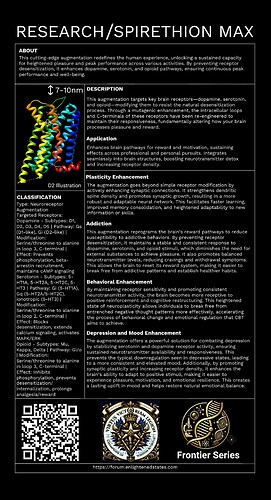More
Here’s a truth about being human:
The more you indulge, the less satisfaction you feel, leaving you stuck in a cycle of seeking more while enjoying less.
When playing video games, the rush of completing a level or winning a match might give you a dopamine boost. But as you play more, the same achievement feels less exciting, pushing you to play longer or seek out harder challenges to get that same thrill.
When shopping, the excitement of buying something new can be exhilarating, but over time, each purchase brings less joy, maybe even leading to impulse buying or retail therapy as you try to reclaim that initial high.
Whether it’s at work or in school, achieving something significant gives you a sense of pride. However, if you’re always chasing the next achievement, the satisfaction from your success diminishes, leaving you feeling like nothing is ever enough.
A drink might help you unwind after a tough day, but over time, you may need more alcohol to feel the same level of relaxation or stress relief, which can lead to dependency.
Desensitization can diminish your ability to find joy and contentment in everyday experiences. The thrill of a promotion, the pleasure of a delicious meal, or the warmth of spending time with loved ones can start to feel less fulfilling as your brain craves ever-increasing levels of stimulation. While there’s nothing wrong with enjoying external rewards, over time, if these rewards are pursued without balance, they can lead to a sense of emptiness, as the simple pleasures and deeper connections that truly enrich life become harder to appreciate.
Medically, desensitization can be a serious issue, particularly in the context of treatments that rely on medications. For example, patients who regularly use opioid painkillers for chronic pain management may find that over time, the same dose becomes less effective, requiring higher doses to achieve the same level of pain relief. This can lead to increased tolerance and a higher risk of dependency or addiction. Similarly, in mental health treatment, antidepressants may become less effective as the brain adjusts to their presence, necessitating changes in medication or dosage. This desensitization complicates treatment and can lead to a frustrating cycle of trial and error for patients seeking relief.
When it comes to recreational drugs, desensitization is the foundation of addiction. As your brain becomes accustomed to a certain level of stimulation from drugs, whether it’s alcohol, nicotine, or something stronger, you need more of the substance to achieve the same effect. This leads to a vicious cycle of increased consumption and deeper dependency, while the original pleasurable effects diminish over time.
But that stuff is not cool, so we said to hell with this and decided to offer: Spirethion Max
This cutting-edge augmentation redefines the human experience, unlocking a sustained capacity for heightened pleasure and peak performance across a broader spectrum of activities.
At the heart of this transformation are your brain’s key receptors—dopamine, serotonin, and opioid—which have been meticulously re-engineered to resist the natural decline that comes with prolonged use. Normally, these receptors can become desensitized, leading to diminished enjoyment and reduced performance. However, through our revolutionary mutagenic enhancement, we have made them desensitization-proof, fundamentally altering how your brain processes pleasure and reward.
For the dopamine receptors—D1, D2, D3, D4, and D5—which govern motivation, reward, and executive function, we’ve implemented a precise substitution of serine and threonine with alanine in their intracellular loops and C-terminals. This prevents phosphorylation, the process that typically causes desensitization, ensuring that your drive and focus remain sharp and unyielding, allowing you to sustain peak performance without the usual decline.
Similarly, the serotonin receptors—5-HT1A, 5-HT2A, 5-HT2C, and 5-HT3—which are essential for mood regulation, perception, and emotional well-being, are also fortified against desensitization. By preventing phosphorylation, these receptors maintain their sensitivity, enabling you to experience a consistent and enhanced emotional state, making everyday experiences richer and more fulfilling.
Finally, the opioid receptors—Mu, Kappa, and Delta—which are critical for pain relief, reward, and deep emotional satisfaction, have been upgraded to resist the desensitization that typically dulls the sense of pleasure over time. With our enhancement, these receptors remain responsive, allowing you to enjoy a wider range of pleasures with a sustained intensity that was previously unattainable.
This augmentation doesn’t just enhance your brain’s capacity for pleasure—it fundamentally redefines it, allowing you to enjoy a superhuman level of sustained satisfaction small or big and perform in all aspects of life.







 🫡
🫡